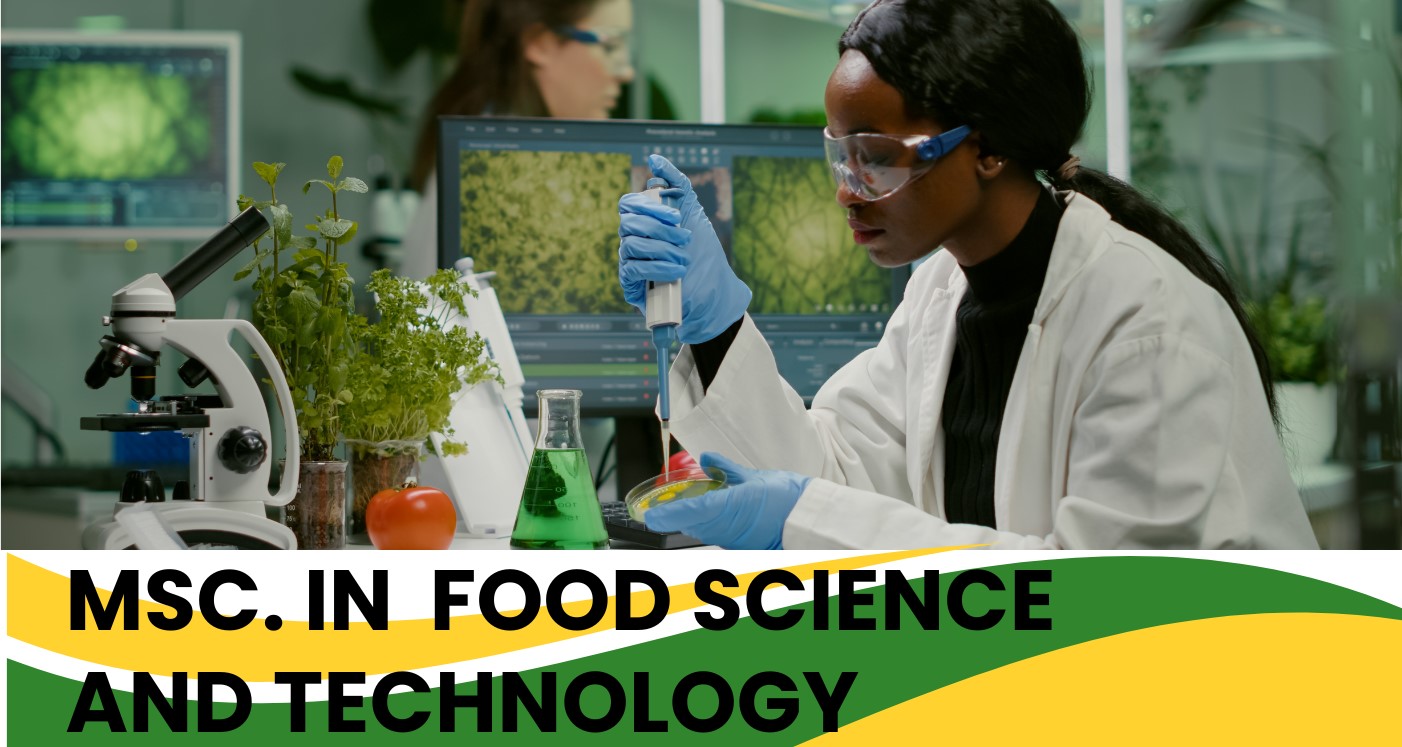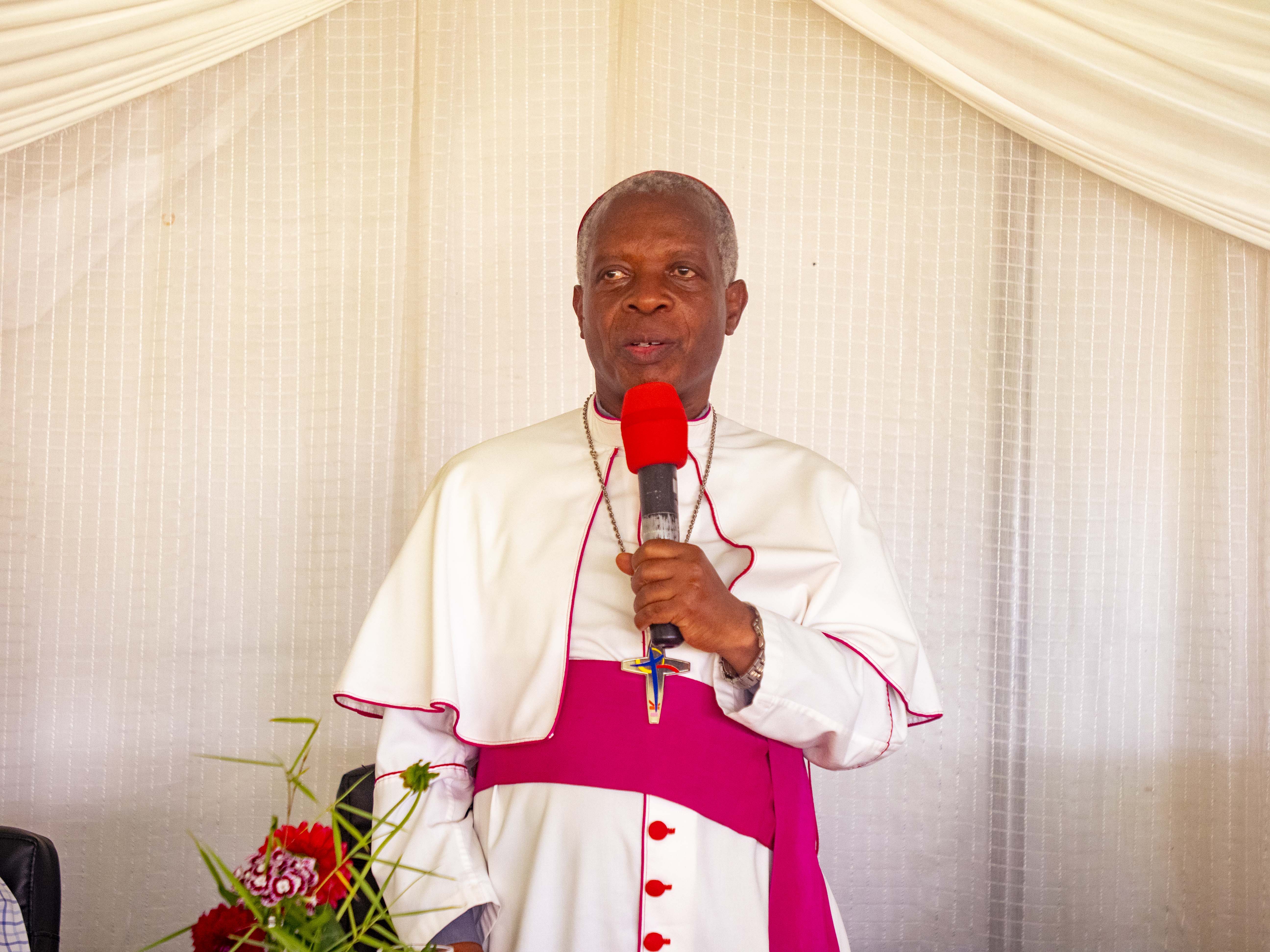Impact Stories: How the Farm to Fork Project is Transforming Rwandan Agriculture
First launched on March 18, 2023, and funded by the Research and Innovation
Systems for Africa (RISA) through UK-Chemonics, the Farm to Fork Supply Chain
and Ecosystem Project (F2FinRW) is revolutionizing agriculture in Rwanda. By
enhancing productivity, sustainability, and market access, the initiative is
changing the lives of farmers, vendors, and transporters across the country.
On February 5, 2024, a distinguished delegation from RISA visited Rwanda to assess the project's progress. During the visit, project initiator and coordinator Prof. KAMANA Emmanuel presented its achievements and future direction. “Through this project, we are not only increasing agricultural productivity but also empowering farmers with digital tools for better decision-making. Our goal is to create a sustainable ecosystem where technology bridges the gap between farmers and markets,” he stated.
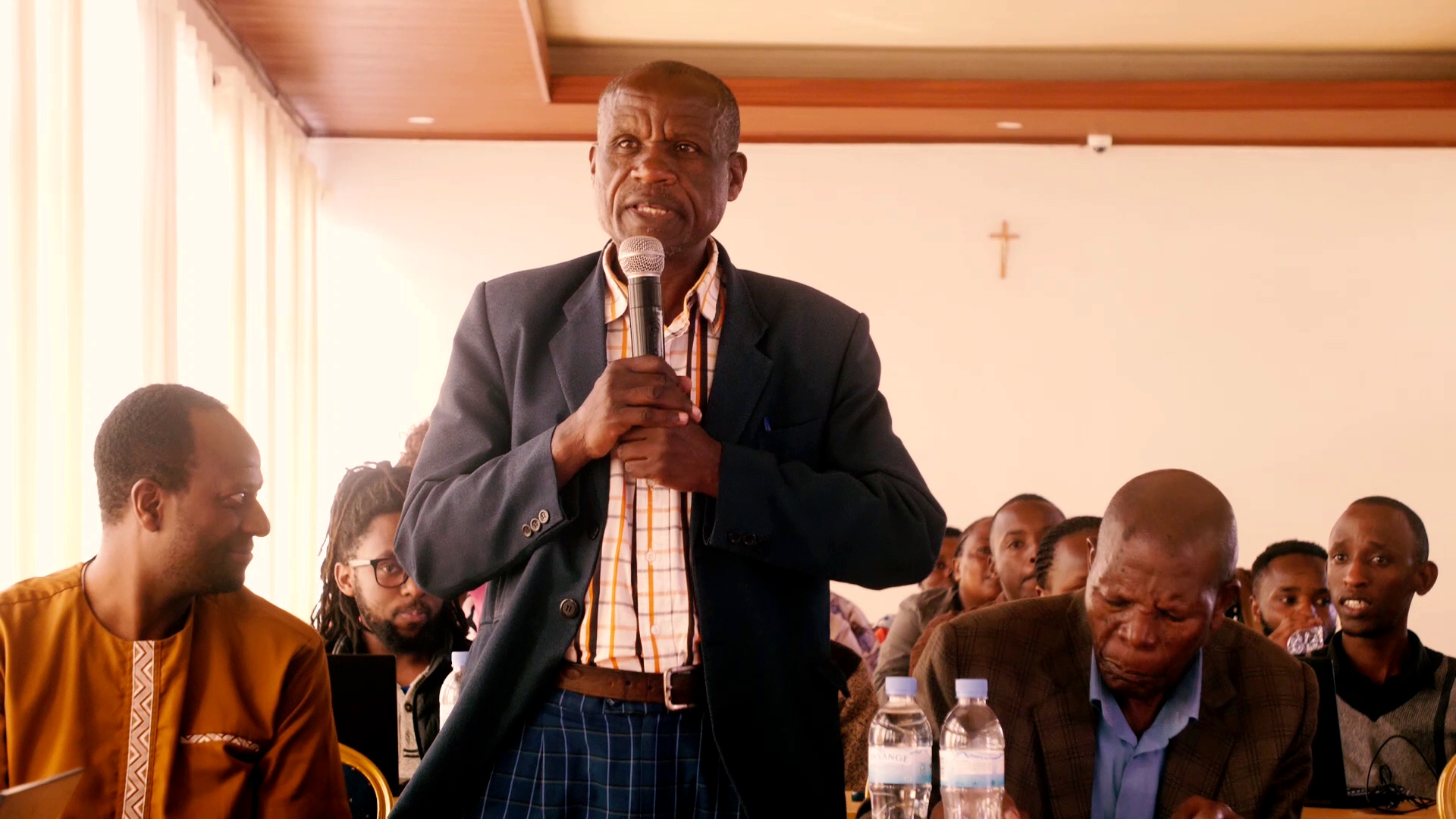 Photo: Isaac sharing his testimony on the impact of the F2FinRW project on his farming operations.
Photo: Isaac sharing his testimony on the impact of the F2FinRW project on his farming operations.
“Before, we had to rely on guesswork, which often led to inefficiencies,” he said. “Now, with clear visual indicators—green for optimal conditions and red for issues—we can take immediate action to ensure crops receive exactly what they need.” As a result, Isaac’s greenhouse production increased from 40,000 to 60,000 tubes per hectare, while open-field farming yields rose from 20 to 30 tons per hectare, marking a 50% improvement in productivity.
 Photo: Jacqueline sharing how the F2FinRW project has improved her business and streamlined her access to farmers.
Photo: Jacqueline sharing how the F2FinRW project has improved her business and streamlined her access to farmers.
For traders like Uwanyirigira Jacqueline, a potato vendor in City Valley,
Nyabugogo, the project has brought new opportunities. “The program connected us
with experienced and larger-scale entrepreneurs, giving us opportunities, we
previously lacked,” she said.
Previously, vendors relied on intermediaries who were not farmers, leading
to inflated costs and delays. “Before, we had no choice but to work with
middlemen, which increased expenses and sometimes caused supply shortages. Now,
we can link directly with farmers, making the supply chain smoother and
fairer,” she added.
Beyond technology, the project has invested heavily in training and capacity
building. Over 1,000 farmers, vendors, and transporters have been trained in
modern agricultural techniques, with 65% of the participants being women. The
initiative is continuously expanding and has integrated 11,500 farmers from
nine new cooperatives, with five cooperatives already receiving plantlets for
further multiplication. These efforts are expected to benefit over 40,000
farmers, equipping them with improved seeds, advanced techniques, and stronger
market connections. Prof. Kamana, the coordinator, explained.
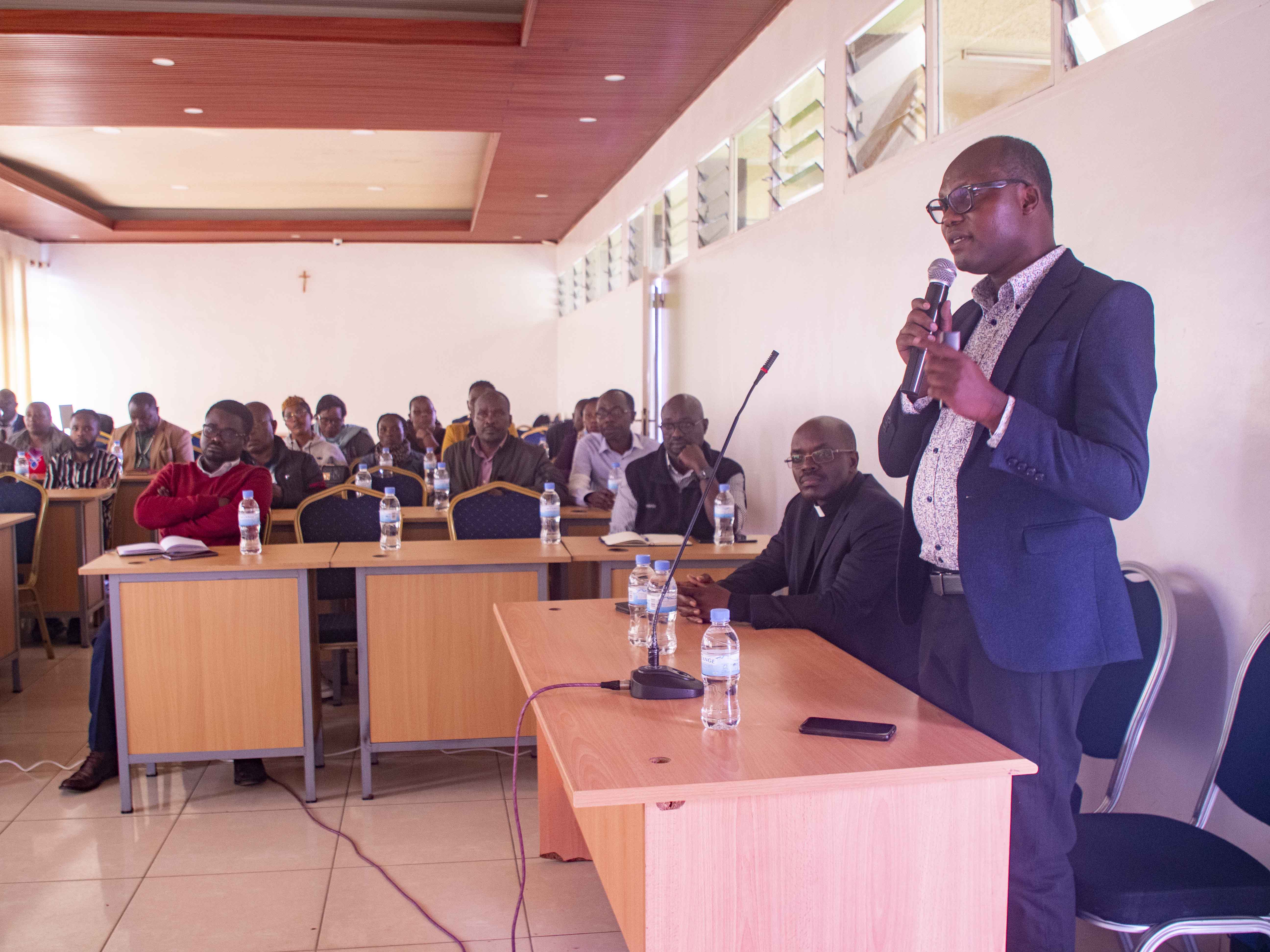 Photo: Coordinator Prof. Kamana explaining the progress and future direction of the F2FinRW project.
Photo: Coordinator Prof. Kamana explaining the progress and future direction of the F2FinRW project.
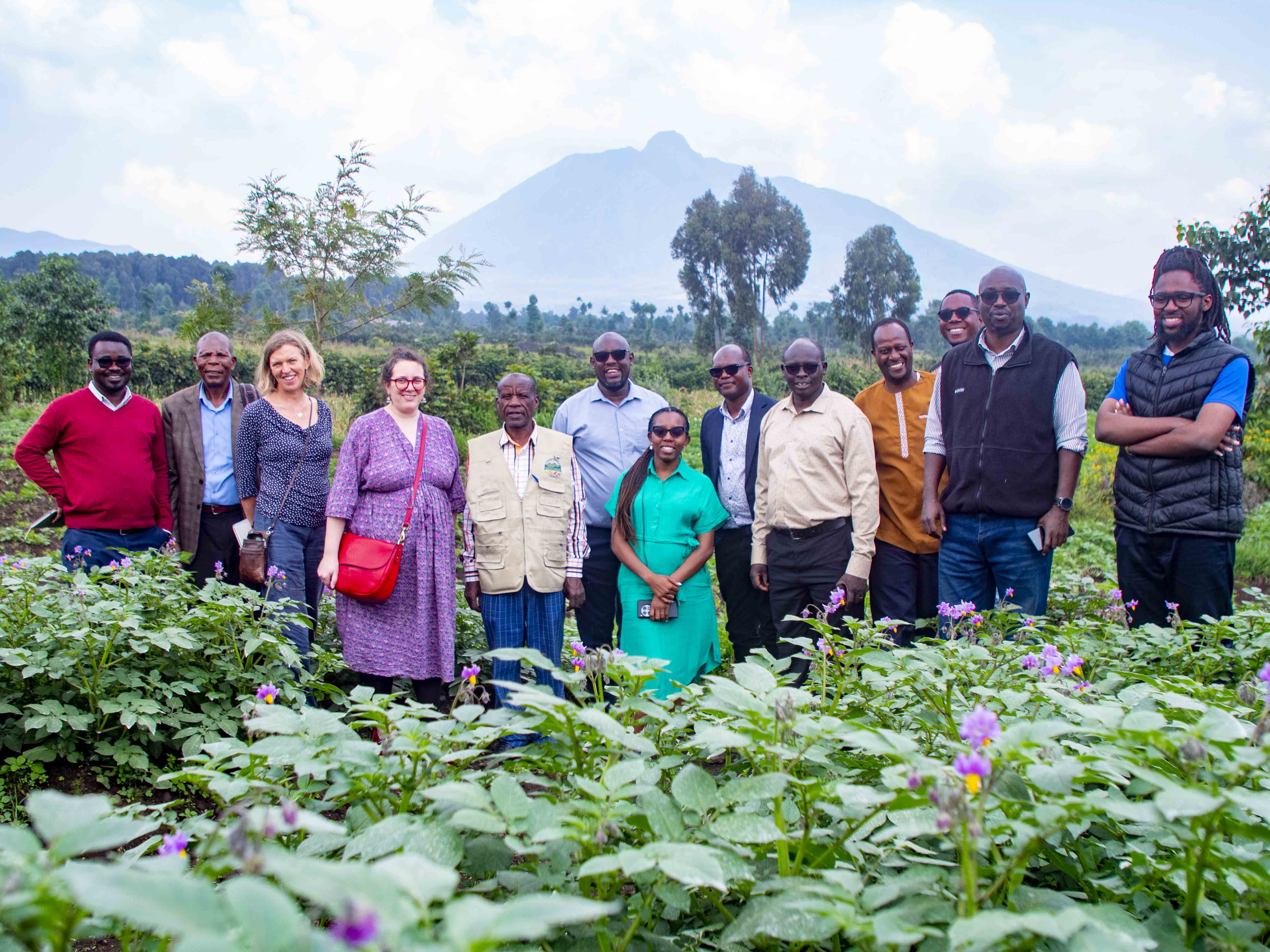 Photo: RISA and F2FinRW project implementers at Isaac’s farm.
Photo: RISA and F2FinRW project implementers at Isaac’s farm.
INES-Ruhengeri met at Classic Lodge in Nyakinama and celebrated together as one family of INES-Ruhe…
LEARN NowStarting September 9, 2024, INES-Ruhengeri will offer a new Master of Science in Food Science and T…
LEARN NowBishop Vincent HAROLIMANA, Chancellor of INES-Ruhengeri, announced salary increases for all staff s…
LEARN Now
